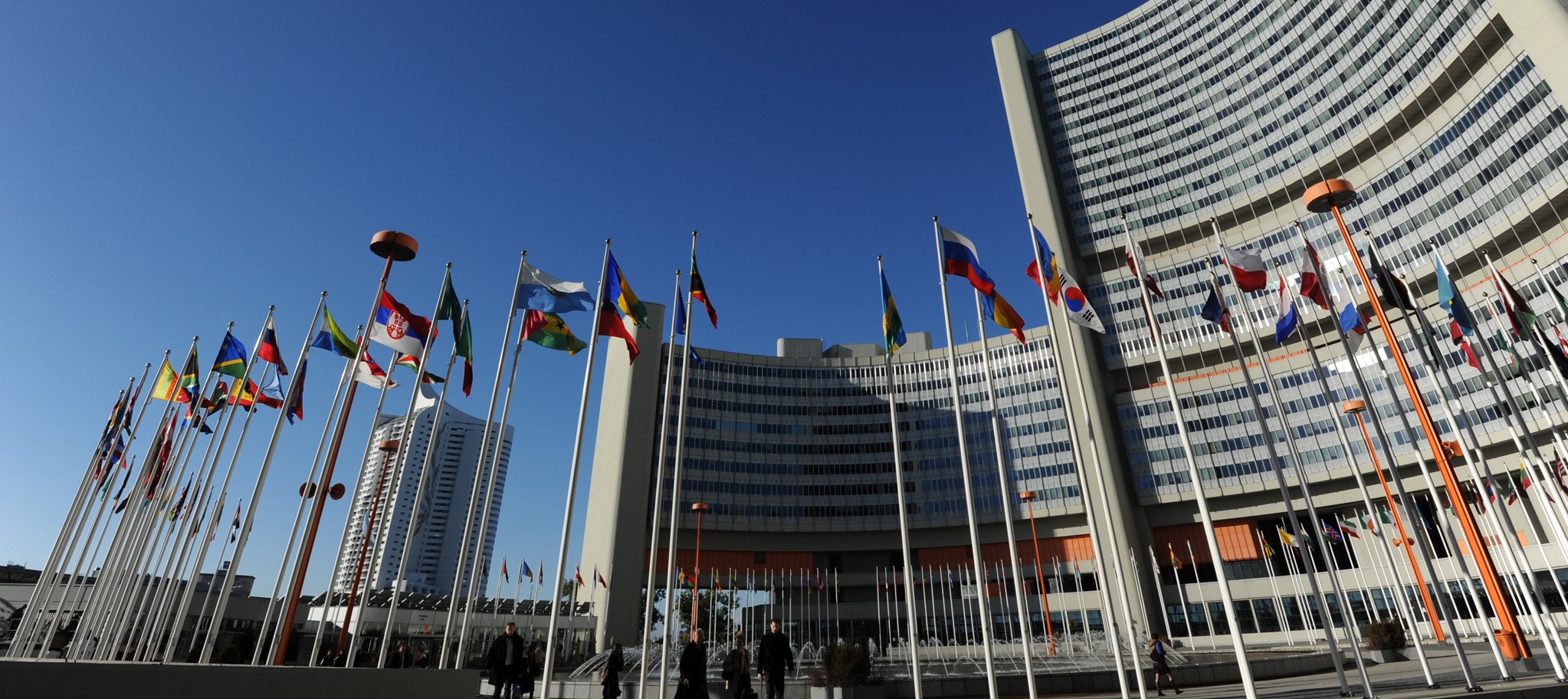- Adoption of the Organized Crime Convention
- Historical context: why Palermo?
- Features of the Organized Crime Convention
- The protocols
- Related international instruments
- United Nations Office on Drugs and Crime (UNODC)
- Conference of the Parties to the United Nations Convention against Transnational Organized Crime
- Summary
- References
Published in May 2018.
Regional Perspective: Eastern and Southern Africa - added in April 2020
This module is a resource for lecturers
Guide to a Model United Nations simulation of a Working Group of the Conference of the Parties to the Organized Crime Convention

Description: Vienna International Center (VIC), Vienna, Austria.
Description of the Guide
This Guide offers instructions and resources for a simulation of a Working Group of the Conference of the Parties to the Organized Crime Convention.
The Guide includes the following materials:
- an overview of the simulation exercise, including objectives and format
- a description of the roles and functions of the participants
- a description of the structure of the flow of the simulated discussions
- some topics for the simulation relating to the mandate of the Working Group on International Cooperation, which need to be handed out prior to the simulation
- background material and resources
Learning objectives and benefits of an organized crime-related simulation
The Model Conference of the Parties (COP) to the Organized Crime Convention has the objective of teaching students about the intergovernmental process related to the Convention while providing them with the opportunity to practice and/or acquire valuable practical skills related to public speaking, debate, diplomacy, negotiation, written communication and critical thinking. In addition, students will have the opportunity to put into practice and deepen their knowledge of transnational organized crime. During the simulation, students will have to use the appropriate rules of procedures of the Conference - or a simplified version thereof - while presenting and defending the policy positions of the countries they are representing.
Sections of the Guide
The following sub-pages provide further information and resources for a successful Model United Nations (MUN) simulation:
- Format of the simulation
- Roles of simulation participants and their functions
- Structure and flow of the Working Group meeting
- Recommended topics for the Working Group on International Cooperation
- Background material and useful resources
- Handouts